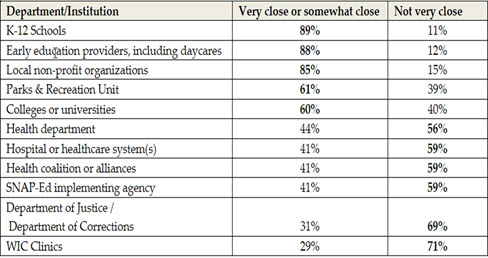
|
||
|
||
|
Editor’s Note: This article is based on a peer-reviewed article that was originally published in the first quarterly issue of Evidence Based Library and Information Practice. It is presented here in an edited form with the permission of all the authors and the publisher’s Creative Commons license. To read the full article,click here. In Spring 2021, we received an intriguing invitation from the South Carolina Center for Rural and Primary Healthcare (SC CRPH). In the previous October, SC CRPH launched the Rural Libraries and Health Cooperative Agreement program in five pilot library systems across South Carolina to test alternative models of community care and healthcare engagement via library partnerships. The program coordinator, Megan Weis, was inspired to start this initiative because of her hands-on experience working with the Richland Library, the public library in Columbia, South Carolina, on expanding access to the Affordable Care Act. Weis saw that the Richland Library’s success was driven by a robust array of community partnerships, most notably in the library’s social work program, which had been in place since 2013. More information on that program is available in a 2016 article Weis and colleagues published in Public Library Quarterly entitled “Partnering with the Public Library for Health Care Education”. In 2021, Weis emailed us because they were experiencing several growing pains in their attempts to scale this model to the state level. We enthusiastically said “Yes!” to helping SC CRPH learn more about health partnership needs and opportunities in South Carolina's public libraries. The State Library of South Carolina joined as a partner in Summer 2021, and with that we were ready to launch. Using snowball sampling techniques in September 2021, 123 library workers from across the state completed an online survey about their health partnerships and health-related continuing education needs; an additional 19 completed a portion of the survey. Key findings included that library capacity is limited, but the desire to support health via partnerships is strong. There is a need for health partnerships to increase library capacity to support health. The need for help came across clearly in the survey results. Figure 1 shows that across the state, most public library staff work with people experiencing homelessness using the library as a day shelter, while more than a third see violence at libraries that requires security staff or law enforcement.
Figure 1: Survey results from September 2021
Grappling with these sorts of complex social issues is what is referred to as the social determinants of health, which the World Health Organization defines as “non-medical factors that influence health outcomes”. Living without a home, substance use, and violence all shape individual and community health, and these are issues that health partners like social workers, community health workers, and public health nurses can help to ameliorate. Unfortunately, we also found that most public libraries had weak to no relationships with health organizations that could potentially work with them to meet these needs. Table 1 shows that a majority of respondents did not have very close relationships with all actors in the health sector while reporting mostly close relationships with all actors in the education and leisure sectors. Table 1: Closeness of Relationships Between Public Libraries and Potential Partners (n=127)
Finally, we uncovered different needs in urban versus rural South Carolina. Whereas urban librarians reported that their top priorities were sustaining and evaluating health partnerships already started, all other librarians (suburban, town, and rural) reported their top priorities were getting started and finding partners.
Table 2: Top Priorities for Library Continuing Education, by Community (n=121)
In addition to sharing these results in the library literature and with the South Carolina Center for Rural and Primary Healthcare, we also presented them at the 2022 South Carolina Public Health Association Conference, where we engaged a room full of health practitioners eager to learn more about how to partner with librarians most effectively. Based on this experience, we would encourage all librarians to seek out partnership opportunities with health organizations in your area. Not only do partners support health access and health literacy, they also present opportunities to address social determinants of health, which include community-level factors such as housing, violence, and education.
DCT Featured Article – March 12, 2024 |
||
| Copyright 2014 - Doody Enterprises, Inc. - All rights reserved |



